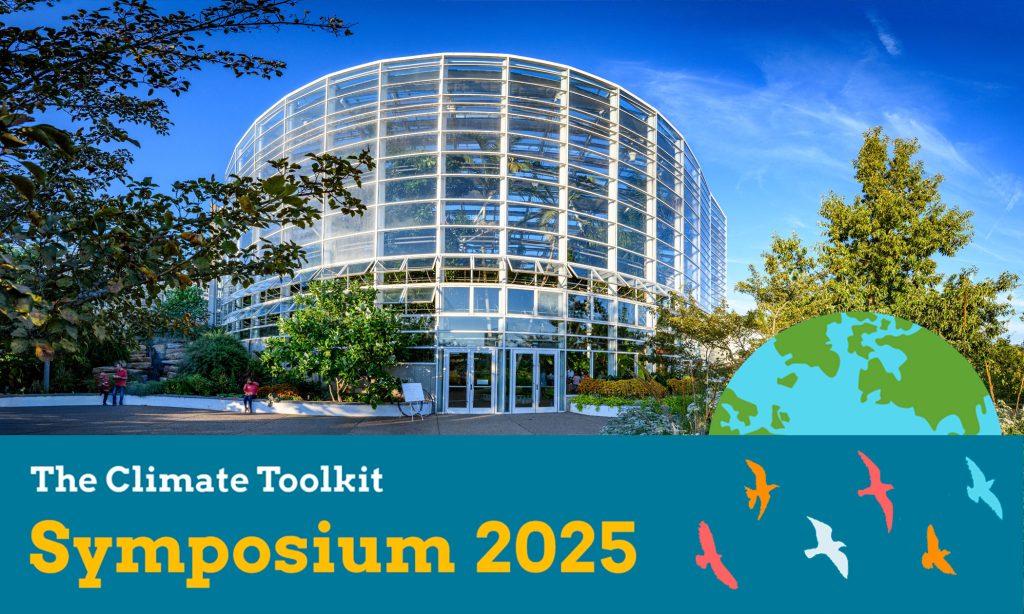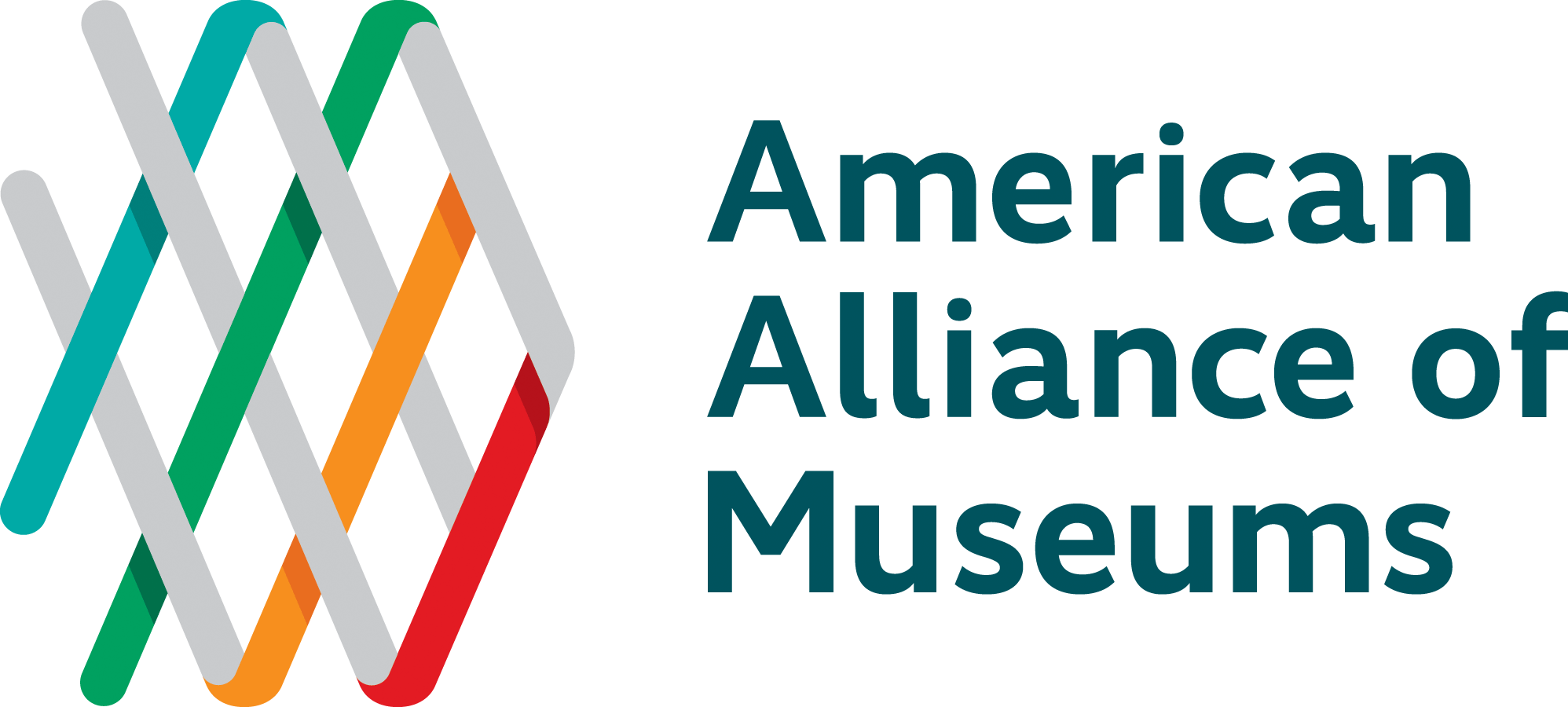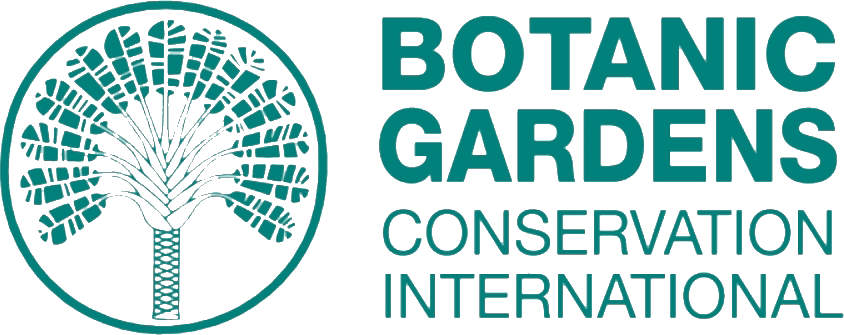Climate Toolkit Symposium Agenda

Opening Evening Reception
SUN., OCT. 26, 6 – 9 P.M.
🌴 Welcome to the Symposium!
Held against the backdrop of Phipps Conservatory’s lush Tropical Forest Panama exhibit and Special Events Hall, this welcoming event will feature an opening address from Richard Piacentini, President & CEO of Phipps, and Margaret Waldock, Executive Director of Duke Farms, plus refreshments, a buffet dinner, live music and networking.
Day 1: Case Studies in Climate Success
MON., OCT. 27, 8 A.M. – 5 P.M., DINNER AND KEYNOTE PRESENTATION 6:30 – 9 P.M.
8 a.m. – 9 a.m. – Breakfast and Welcome
9 a.m. – 10:30 a.m. – Program One
⚡ Energy and Decarbonization
Cultural institutions are stepping up as climate leaders by reducing carbon emissions and transitioning to renewable energy. In this panel, institutions will share how they are implementing ambitious decarbonization strategies, offering lessons learned from real-world successes and challenges.
- Richard Piacentini, President and CEO – Phipps Conservatory
- Jon Wagar, Deputy Executive Director of Operations and Sustainability – Duke Farms
- Rachel Novick, Ph.D., Director of Sustainability – The Morton Arboretum
- Rafael de Carvalho, Associate Vice President for Capital Projects – New York Botanical Garden
10:45 a.m. – 12 p.m. – Program Two
🌍 Climate Interpretation and Engagement
How can institutions engage with the public on a changing climate? This panel presentation brings together institutions to highlight creative approaches to interpretation and engagement that will inspire audiences to participate in climate solutions.
- Anais Reyes, Curator – The Climate Museum
- Casey Mink, Assistant Exhibits Developer – Natural History Museum of Utah
- Jen Kretser, Director of Climate Initiatives – The Wild Center
- Mark Wourms, Ph.D., President, Chief Executive Officer – Bernheim Forest and Arboretum
12 p.m. – 1 p.m. – Lunch
1 p.m. – 2:15 p.m. – Program Three
♻️ Breakout Focus Areas I: Waste Management and Nature-Based Solutions
Breakout tracks offer participants an opportunity for a focused conversation on specific areas of climate action. Each session begins with a short presentation from a subject expert, followed by a facilitated, round-table discussion to support knowledge sharing and problem-solving. Round one will feature presentations and discussion on the following areas:
- Waste Management and Staff Engagement
- Allison Tilson, Senior Manager of Sustainability and Conservation Operations – National Aquarium
- Nature-Based Solutions
- Jeff Downing, Executive Director – Mt. Cuba Center
- Christy Rollinson, Ph.D., Senior Scientist, Forest Ecology – The Morton Arboretum
2:30 p.m. – 3:45 p.m. – Program Four
🌳 Breakout Focus Areas II: Climate Research, Conservation and Action, Facilities Management
Round two of breakout focus areas will feature short presentations from subject experts, followed by facilitated round-table discussions to support knowledge sharing and problem-solving:
- Climate Research
- Chelsea Miller, Ph.D., Assistant Professor, Global Change Biology – University of Akron
- Lara Roketenetz, Ph.D., Field Station Director – University of Akron Field Station
- Conservation and Action: Bridging the Gap
- Shafkat Khan, Ph.D., Director of Conservation – Pittsburgh Zoo & Aquarium
- Facilities Management
- Jim Hanson, Manager of Sustainability and Technology – Duke Farms
- Joe Zalenko, Facilities Manager – Duke Farms
4 p.m. – 5 p.m. – Program Five
🌱 Youth Climate Advocacy
Amplifying youth voices is critical to advancing the climate movement and driving action within communities. In this panel and audience Q&A session, hear directly from youth climate leaders at Phipps as they share their experiences as advocates and changemakers.
- Emma Ehan, YCAC Leader – Phipps’ Youth Climate Advocacy Committee
- Anwita Maneish Nithya, YCAC Team Lead – Phipps’ Youth Climate Advocacy Committee
- Cortlan Harrell, YCAC Team Lead – Phipps’ Youth Climate Advocacy Committee
- Marley McFarland, YCAC Leader – Phipps’ Youth Climate Advocacy Committee
5 p.m. – 6:15 p.m. – Living Buildings Tour
Join Phipps Conservatory’s interpretative specialist, sustainability manager, and director of facilities and sustainability for an in-depth, behind-the-scenes green buildings tour of the Center for Sustainable Landscapes, Exhibit Staging Center, Nature Lab, and Production Greenhouse Facility and learn about strategies for net-zero energy and water.
6:30 p.m. – 9 p.m. – Dinner and Keynote Address
The evening will conclude with a sit-down dinner in the Special Events Hall and keynote address from David W. Orr, the Paul Sears Distinguished Professor of Environmental Studies and Politics Emeritus at Oberlin College, and present Professor of Practice at Arizona State University.
Day 2: A Deep Dive Into the Future
TUES., OCT. 28, 8 A.M. – 4 P.M.
8 a.m. – 9 a.m. – Breakfast and Welcome
9 a.m. – 11 a.m. – Program One
🌻 Essence as Compass: Guiding Climate Action with Regenerative Thinking
This session invites participants to explore the power of working from essence—connecting with the unique core of who they are and what truly matters. In a time when climate action can often feel reactive or overwhelming, returning to essence offers a way to move with greater clarity, coherence, and purpose. From this foundation, our actions become more regenerative, our strategies more aligned, and our potential for lasting impact more fully realized.
- Sonja Bochart, Director, LENS – Shepley Bulfinch
- Richard Piacentini, President and CEO – Phipps Conservatory
11 a.m. – 12 p.m. – Program Two
🍃 Peer Networking
This session invites participants to connect with others who share similar roles within the focus areas of leadership, facilities and operations, community partnerships, engagement and education, and nature-based solutions in an intentionally informal setting. Each group will guide its own discussion, creating space for organic connections, shared learning, and potential partnerships that extend beyond the Symposium.
12 p.m. – 1 p.m. – Lunch
1 p.m. – 2:30 p.m. – Program Three
✅ Climate Action Workshops
In this final session of the Symposium, participants will choose from a menu of facilitated climate action workshops in order to help catalyze climate action planning and implementation at your institution.
- Forming a Climate Action Resiliency Plan
- Stephanie Shapiro, Co-Founder & Managing Director – Environment & Culture Partners
- Al Carver-Kubik, Program Officer, Grants & Research – Environment & Culture Partners
- Becoming Your Community’s Climate Resource / Civic Engagement
- Rose Hendricks, Ph.D., Executive Director of Seeding Action – Association of Science and Technology Centers
2:40 p.m. – 3:15 p.m. – Share and Reflection
3:15 p.m. – 3:30 p.m. – Reconvene and Farewell
Your $200 admission ticket includes full symposium admission and all food and beverages. The Climate Toolkit Symposium is immediately followed by the Mid-Atlantic Association of Museums Annual Conference, also in Pittsburgh – we encourage interested attendees to extend their stay and join both events.
Questions? Contact alampl@phipps.conservatory.org or call 412-622-6915, ext. 6752





